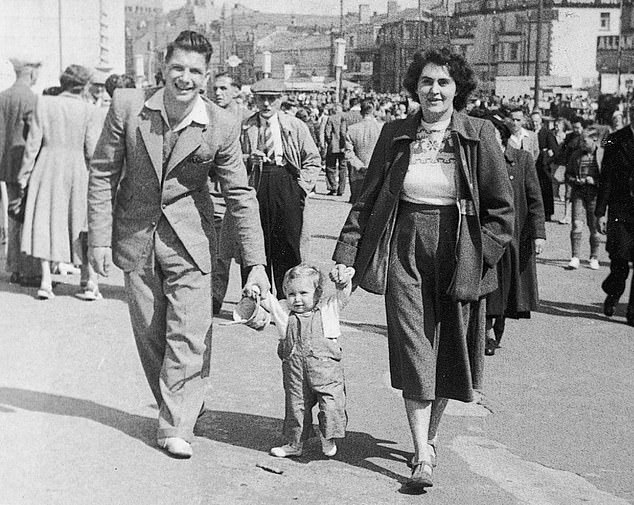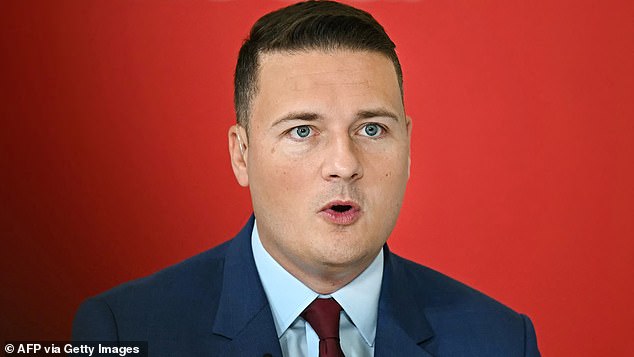My dad often told me how hard school was for him. He was considered thick and always made to sit at the back of the class. He never passed any tests and was advised to leave school at 14 and just get a job.
Yet he was a bright man, who went on to enjoy a successful career and a happy home life.
The reason for the sluggish start? Deafness that went undiagnosed for more than 40 years.
No one thought to have his hearing tested when he was a child. It would be a long time before the NHS offered such things for free and I guess it never occurred to his parents that strong, healthy Alvin – the youngest of six – would need to see a doctor at considerable expense.
Meanwhile, the school’s misunderstanding of my dad’s struggles held him back considerably. Only the bright ones sat at the front. But nothing could have been worse for him than being relegated to the back. He found the teacher hard to hear even when he was close to her. So what chance did he have?
I thought of Dad when I read that Health Secretary Wes Streeting has ordered an inquiry into what he has described as an unforgivable child hearing scandal. It seems botched NHS hearing tests may have blighted the lives of thousands of children.

Jenni Murray as a baby with her parents in 1951. Her father confided in her how hard school was for him

Health Secretary Wes Streeting has ordered an inquiry into what he has described as an unforgivable child hearing scandal
Hundreds have already been recalled by hospitals across England amid fears they were misdiagnosed after having hearing tests between 2018 and 2023. Over a thousand more need to be seen in the next two months.
So far, 107 have been found to have suffered serious harm after being classed as deaf when they may have just needed hearing aids or cochlear implants.
Others faced delays in receiving a diagnosis, meaning they were denied the help that would have benefited them.
The errors could have hampered the learning and communication skills of those affected with ‘devastating and lifelong’ consequences, Streeting has said.
I know only too well how difficult it can be for a child who is considered what, in my father’s day, was called hard of hearing. His experience is a case in point.
Dad had enough hearing in his teenage years to just about get by with people he was close to. He showed a keen interest in electronics, a passion that would see him succeed in spite of his school writing him off.
His talent at fixing radios got him a job at the only television repair shop in town. He was paid peanuts but loved the work.
It was when he was invited to do the lighting for a play performed by a local drama group that he fell in love with a beautiful young woman playing the lead role – my mother Win.
Handsome and charming, Dad seems to have heard my mother’s yes to his invitation for a date and the two young lovers, aged 19, would manage for many years by whispering sweet nothings in each other’s ears.
Then came the engagement, preparations for marriage and my organised, civil servant mother had no fear of applying her somewhat bossy nature to the man she loved.
She was not going to have a husband who couldn’t hear, had no qualifications and worked in a pretty lowly job for very little money.
First the hearing aid. The GP accepted he had a problem and prescribed a bulky NHS hearing aid which he hated and wore only when it was absolutely necessary.
Then education became her priority. She knew he was far from thick and determined that he should go to night school. He did brilliantly and became a qualified electrical engineer. It makes me sad that he spent all those years thinking he was stupid. What might he have achieved if his school had picked up on his problem and given him the care he needed?
He got a wonderful job with a company who did huge building contracts all over the world. It would mean travelling a lot and being away from home a great deal, but he was a successful, well paid and greatly respected engineer.
My mother was happy that her ambition had worked out perfectly. Sometimes she would travel with him, sometimes stay home with me. Theirs was the happiest of marriages.
But the scars from his formative years never left him and the hearing aid was not much of a help.
Throughout my childhood Dad spoke very quietly and listened intently and, for my mother and I, it meant living in a very noisy world. The radio and television were always at full volume.
We shouted rather than spoke to him and begged him to wear his hearing aid whenever we were in the company of other people. We didn’t want anyone to think he was stupid, making wholly inappropriate responses to what they had said.
Then, when he’d just turned 40, he underwent a surprising transformation.
I was 16 or so when he was asked to carry out a big engineering contract in Belfast. He would leave for work on a Sunday evening and often spend two or three weeks in Northern Ireland.
Water, water… everywhere!
I’d feel better about being told to save water if the companies were not wasting three billion litres a day through leaking pipes.
Three years ago, I had a bill for £1,500. It had to be a leak. They came twice to fix a pipe in the garden. Finally, I had a renovation of my meter.
This year’s bill, £600. Still an outrageous cost and I’m not sure I trust the leak is fully fixed.
After a few months of coming and going, he arrived home one Friday night. I greeted him with my usual full volume, ‘Hi Dad, how’s it going?’ only to be astonished at his response. ‘Hush, love. No need to shout.’
Mum was told to tone down the level of her voice along with the volume of the radio and television.
What was going on?
The story was astonishing. On the flight to Belfast, the man next to him had turned to face Dad, who had some talent at lip-reading and told him he recognised he was deaf because of his odd way of trying to conduct a conversation.
The man was an ear, nose and throat surgeon. He was pioneering an operation where the stirrup bone in the middle ear, often coated in hardened mucus in some deaf patients, would be removed and replaced by a plastic one.
Only a week after that chance encounter, Dad was admitted to hospital where they discovered this was indeed his problem. A simple procedure and his hearing would be restored for the first time in his life.
He said nothing to us about it but we could not have been more delighted when he came home and told us we didn’t have to shout anymore.
He did tell me that he thought his deafness had been rather positive for me. All that shouting and clear articulation had done my voice no end of good.
But from that day on, my father’s life changed immeasurably. After half a lifetime of struggling with semi silence, he was able to socialise in a way he had never been able to do before. He became quite chatty. He enjoyed going to the theatre because at last he could hear the performance.
He developed a passion for classical music concerts and at work he was able to control progress, clearly in charge and never embarrassed by not quite catching what was said.
All these years on, all children should have the right to be tested, properly analysed and given the correct treatment for whatever is causing their hearing loss. It’s essential for them to be able to listen, speak and socialise.
No one should have to wait until their 40s to get the right treatment and have a world of sound finally opened up for them.
I was difficult to date too Florence
Florence Pugh has suggested her busy schedule means she’s ‘tricky’ in a relationship.
Declaring sympathy for anyone falling in love with her – her partner is thought to be Peaky Blinders’ Finn Cole – she told Harper’s Bazaar magazine her hectic life means she can never make dates. Yet she doesn’t want to end up alone.
I know the feeling, Florence. I was pretty tricky in my relationships at the height of my career, rarely able to commit to ‘being there’.
Remember, the work matters and you’re never alone with a good job.


Declaring sympathy for anyone falling in love with her – her partner is thought to be Peaky Blinders’ Finn Cole – she told Harper’s Bazaar magazine her hectic life means she can never make dates
Bravo for plus-size ballerinas
Bless the new artistic director of the Royal Ballet school, Iain Mackay, who says audiences want dancers they can relate to and that could include plus-size ballerinas. If only he’d been there when I was a girl. I loved ballet, but gave up because I was big.